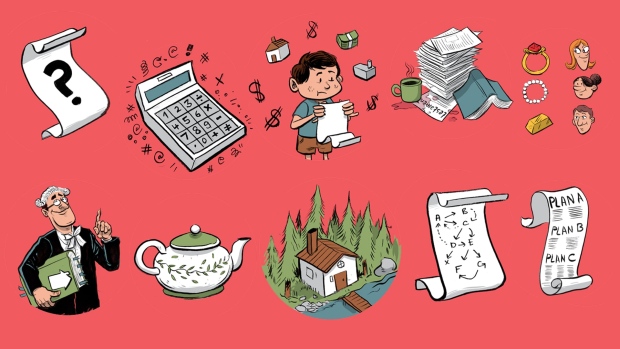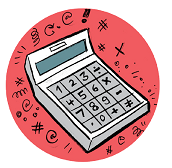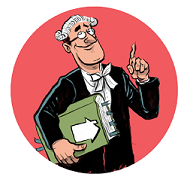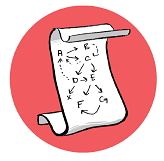Oct 23, 2019
MoneyTalk: Top 10 mistakes people make in a will
Presented by:


Mistakes in your will may leave your executors incapable of carrying out the plan that you had in mind for your family and beneficiaries. Here are some common errors people make and how you may avoid them.
The will the family made could not have been simpler or more straight-forward . . . or so they thought. The couple was to pass on their estate to their two sons. Time went by and the father died but there was no need to worry about where their sizable estate would go. However, the mother lived to a ripe old age, even outliving both her sons who both died in their 70s without any heirs.
When the mother finally died in her 90s, where did the hard-earned money, saved over decades and decades, go?
Probably not where the family would have wanted. Without surviving children, the estate could have gone to good friends or charities. But without any living relatives in Canada, a cousin in Eastern Europe, who the family had never met and maybe didn’t know even existed, received $1 million.
 1. No ‘Plan B’
1. No ‘Plan B’
The error that the parents made, and one that many other people make, is that they forgot ‘gift over’ provisions when writing their will, meaning they didn’t have a ‘Plan B’ if the parents outlived their beneficiaries.
It’s a cautionary tale for all those who sit down at the kitchen table to write out their will. Mistakes are made all the time — even by lawyers — and tiny errors can ruin the best-laid plans for passing down your family wealth and heirlooms.
 2. Not Having A Will
2. Not Having A Will
Laima Alberings, a Tax and Estate Planner with TD Wealth, says this is the greatest disservice you can do for people you love. With no will, practically anyone can go to court and contest your assets. If your affairs are complicated or there is dissention in the family, your estate could be dragged through court for years, costing thousands, or more, in legal fees.
 3. Mathematical Mistakes
3. Mathematical Mistakes
There are many ways people can divide their assets among their beneficiaries. . . and each method is prone to errors. Simple mathematical mistakes made by dividing assets into dollar figures or percentage points can result in a protracted court appearance to get the will settled if totals don’t tally up. It may be better to divide assets into shares of the whole. For instance, if a family had three children, one good friend and three favorite charities who would be included in their will, the parents could distribute their estate by dividing its total value into 100 shares. Therefore, the parents could decide that the children get 30 shares each, the good friend gets 5 shares and the three charities get 1.66 shares each. This way, if values change, your beneficiaries will receive the proportions you want.
 4. The Kids are Too Young
4. The Kids are Too Young
While you may want your children to inherit, you may not want them to have a huge lump sum at or before they turn age 18. Including trust provisions for minors in your will could prevent them, from immediately have unrestricted access to their inheritance if you die before your children are 18. The trust provisions specify that if they inherit at a young age, the assets will be held in trust and dispersed according to a prescribed schedule. If you are thinking of establishing a trust, please consult your lawyer and your financial advisor.
 5. Choosing an Inappropriate Executor
5. Choosing an Inappropriate Executor
Naming the “wrong” executor can throw off your best intentions because of personality clashes or because someone is not competent or capable to see your carefully planned final wishes through. Is your executor older than you? Often unreliable? Too busy with their own affairs? You may wish to look for another executor who is more appropriate or use a corporate executor such as your bank. In any case, your will should be reviewed frequently to verify that whomever you’ve chosen as executor in the past is still the best choice.
 6. Using a Lawyer Who’s Not a Will and Estate Specialist
6. Using a Lawyer Who’s Not a Will and Estate Specialist
Just like you wouldn’t see a dermatologist when you are having chest pains, you have to find a lawyer who is knowledgeable about wills and estate planning when you draw up your will. Often people are happy to look up a lawyer they know who helped them buy a house, but not all lawyers are experts in every field. To draw up a will, talk to a will and estate specialist.
 7. Not Detailing the Personal Stuff
7. Not Detailing the Personal Stuff
Alberings recalls the family that fought over mom’s $40 teapot that she used at Sunday dinners. “They were spending thousands of dollars in legal fees fighting over that teapot.” Often personal items are the most passionately fought over because of their sentimental value. With that in mind, it is best to be as specific as possible about who gets what. Consider making a list and describe each item as carefully as possible in a memorandum that you send to your lawyer.
 8. Cottage Complications
8. Cottage Complications
Not only does a cottage come with sentimental value, it also comes with costs and taxes. Affairs get complicated if one child wants the family cottage, one has their own and another lives too far away to enjoy it. When the cottage is concerned, speak with your children first to gauge who would like to inherit the cottage and who is prepared to maintain it and pay the costs. Then, be specific about who will inherit (based on who actually wants the cottage), who will maintain it and who will use it.
 9. Too Many or Too Few (Conditions, that is)
9. Too Many or Too Few (Conditions, that is)
“The more specific and detailed your restrictions are, the more problems you’re going to cause with your executor,” says Alberings. She recalls one client didn’t want a child to inherit if they had a tattoo. Alberings countered that, it would be difficult for the executor to verify whether someone had a tattoo somewhere on their body — and nothing would stop them from getting a tattoo the day after the person inherited. The idea was dropped.
 10. Be Specific
10. Be Specific
Similarly, being too vague about conditions or disbursements can also cause stress and may disrupt your original intentions. The dangers are that you declare in your will that Kate gets your diamond ring, but what happens if you have more than one diamond ring — and did you mean daughter Kate, cousin Katy or Aunt Katherine? (Taking digital images of these items will help indicate where each item goes.)
Alberings says it important to get your will done by an experienced professional who is familiar with your affairs and can help realize your wishes for your family. That way you can have peace of mind that your family will be well-looked after and that your wishes be carried out as you planned.









